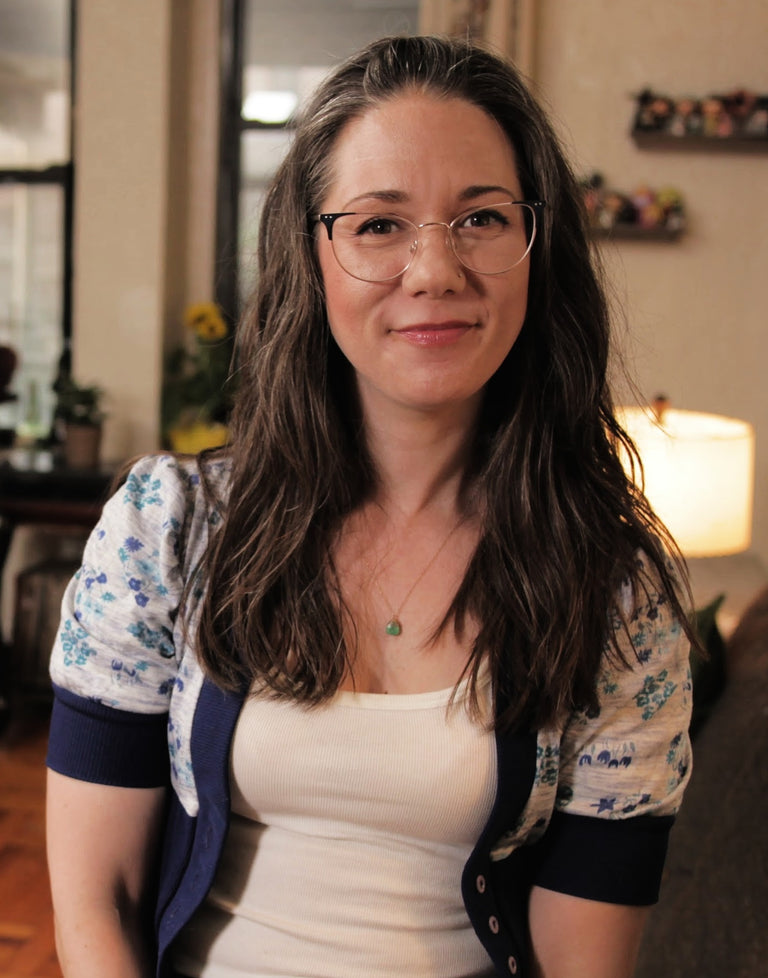If you’ve ever managed a hair loss condition, you probably already know how complex and varied the causes of hair loss can be. But if you’re starting to notice increased hair shedding or your ponytail feels thinner than it used to, you might be wondering what you should do.
Is it possible to prevent hair loss? Read on to uncover expert insight and tips for hair loss prevention, along with what products you should use to encourage thicker, fuller-looking hair.
Is It Possible To Prevent Hair Loss?
“This depends on the type of hair loss,” said Dr. Daniel Grabell, a board-certified dermatologist with Princeton Dermatology Associates.
Hair loss and thinning hair happen for many different reasons, some of which cause permanent hair loss that could be difficult or impossible to prevent. Still, others may cause temporary hair loss that can be completely resolved and even completely prevented.
Ultimately, it comes down to what’s happening to the hair follicles and why. Some forms of hair loss are linked to genetics, while others are caused by an underlying medical condition. Hair loss can even have behavioral underpinnings.
Here's a look at a few of the most common causes of hair loss and whether they can be prevented.
Androgenetic Alopecia
Androgenetic alopecia, also called androgenic alopecia or AGA, is more commonly known as male pattern baldness/male pattern hair loss or female pattern baldness/female pattern hair loss.
It’s a very common form of hair loss experienced by about 50 million men and 30 million women in the United States. This condition is believed to be largely genetic and occurs because of hair follicle sensitivity to a group of hormones called androgens. While there is no cure or way to prevent AGA, starting treatment early can slow progression and help encourage new hair growth.
Get The Full Picture: Androgenetic Alopecia Explained
Alopecia Areata
Alopecia areata is a hair loss condition that affects about 7 million Americans and is easily identified because it causes a distinct pattern of round, coin-sized, patchy hair loss.
Alopecia areata is not well understood, but it is caused by an underlying autoimmune dysfunction. Although patients might have a single episode that resolves itself without treatment, hair loss caused by alopecia areata might also be recurring or permanent. There is no way to prevent this condition; however, if treated early, patients can often manage hair loss.
Dig Deeper: Alopecia Areata’s Causes, Treatments and More
Trichotillomania
Trichotillomania is a hair-pulling disorder, and those experiencing it typically find it difficult to stop. Because this condition is often caused by stress and anxiety, seeking professional counseling or psychotherapy to address the root causes is the best form of treatment. Once the hair pulling is stopped, growth typically returns to normal. If continued over the long term, however, permanent damage to the follicles is possible.
Traction Alopecia
Another common form of hair loss is called traction alopecia. This hair loss condition is one where preventing hair loss is possible and typically resolves once the offending hair follicle stress is eliminated. The hair follicle stress in question? Tight hairstyles.
“Traction alopecia is very common and can be prevented by avoiding placing the hair in tight braids or extreme tension with buns, ponytails or extensions,” said Dr. Emmanuel R. Loucas, assistant clinical professor of dermatology at Mount Sinai Hospital.
If you are diagnosed with traction alopecia, giving your follicles a break (and maybe even a little pampering) is probably all you’ll need to resume regular hair growth. But if you decide to push it? “Unfortunately, if this type of hair loss occurs over a long period of time, it could be permanent,” explained Dr. Loucas.
De-Stress Your Scalp: Everything You Need To Know About Traction Alopecia
Telogen Effluvium
“Another common cause of reversible hair loss is called telogen effluvium,” Dr. Loucas said.
Telogen effluvium (TE) is a temporary form of sudden hair loss caused by major stressors — emotional or physical. Things like COVID-19, the loss of a job or loved one or even moving to a new home can create a shock in the body that temporarily impacts the normal growth cycles of your hair.
While this kind of hair loss isn’t typically preventable, it does typically resolve on its own.“Most of the time no treatment is needed, and, with patience, people will experience full hair regrowth,” said Dr. Loucas.
Find Out: Symptoms, Causes and Treatments For Telogen Effluvium
Anagen Effluvium
Anagen effluvium is another hair loss condition that impacts the growth cycles of your follicles. While TE causes the hair shaft to move prematurely into the resting (telogen) phase of growth, anagen effluvium causes hair to fall out during the active phase of growth (the anagen phase).
AE is most often caused by chemotherapy or other drug treatments that inadvertently target hair follicles. It is not preventable, though cooling caps are often used to help minimize hair loss due to chemotherapy. That said, once treatment is stopped, hair growth usually returns to normal.
Act Early
While some forms of hair loss are unavoidable, early treatment is key.
“The sooner you can identify the cause of hair loss and address it, the better off you'll be,” advised Dr. Anna Chacon, board-certified dermatologist with My Psoriasis Team.
Acting early could mean treating the hair loss directly, but it could also mean treating the underlying health condition that is causing the hair loss. Either way, talking to professionals who can provide medical advice for addressing the root cause can slow or even prevent further hair loss.
“If you notice significant hair loss, the best approach would be to seek out a doctor or dermatologist who can offer a diagnosis and provide treatment of any underlying health conditions that may be contributing,” said Dr. Raj Singh, an internal medicine physician with Seven Heart MedSpa.
Treat The Underlying Cause
While there are several common causes of noticeable hair loss, this is by no means an exhaustive list. Losing hair could also be connected to autoimmune conditions or other lifestyle causes, such as:
“Remember that hair loss is caused by a variety of factors like genetics, infection, medication or lifestyle and that knowing the cause is important for the right prevention strategies or hair loss treatment,” said Tiffany Joy Yamut, a registered nurse with Perfect Keto.
Be Gentle
Another point that experts agree on is to be gentle on your follicles. “When it comes to hair loss prevention, the best thing is to avoid anything that may cause tension on your locks,” advised Dr. Singh.
“For one, avoid chemically treating your hair,” said Dr. Jae Pak, Medical Doctor and founder of Jae Pak Medical. “Along the same vein, opt for natural shampoos since mainstream products often contain harsh ingredients that strip the hair of their much-needed protective oils."
Choose Natural, Gentle Products
GRO Revitalizing Shampoo is all-natural, vegan and cruelty-free. Not only that, but it is packed with beneficial phyto-actives that will leave your hair silky smooth and support a healthy scalp microbiome.
Minimizing the stress levels on your scalp could also mean avoiding tight ponytails, buns, braids or weaves. Think super-soft hair ties to give your follicles a little extra TLC.
Scalp massage is another pampering technique that your follicles will love. Plus, it also has science-backed evidence suggesting that it could be beneficial for improving blood circulation to the scalp and helping stimulate hair growth! Our GRO Revitalizing Scalp Massager not only feels great but is an excellent tool to make sure products like hair serums and scalp detoxifying treatments really penetrate the scalp where they can provide optimal benefit.
“Lastly, be mindful of the tools you are using on your hair. High-heat styling tools are not your friend, and you should opt for a brush made of natural fibers to help keep breakage to a minimum,” said Dr. Pak.
#include-related-slider#
Take Care Of Your Body
Some forms of hair loss can be minimized or even prevented with healthy habits.
Eating a balanced and healthy diet and filling in the gaps with a hair-friendly supplement can help you avoid hair loss due to nutritional deficiencies. Actively managing stress can help make your body more resilient to forms of stress-related hair loss like telogen effluvium. And taking care of your follicles by avoiding stress from tight hairstyling can help prevent traction alopecia.
The health of our follicles is, in large part, dependent upon our general health and well-being.
The Takeaway
Anyone experiencing hair loss knows how challenging it can be. Hair loss happens for many different reasons, and unfortunately, some forms of hair loss are unavoidable.
The good news is that many forms of hair loss are treatable, and some are totally preventable. In any case, early detection and treatment of the root cause is key to minimizing loss and stimulating new growth.
Taking care of your general health through exercise, stress management and healthy eating, along with keeping on top of regular check-ups with your doctor, are the best preventative actions you can take to protect against unnecessary hair loss—and take care of your mind and body too!
More From VEGAMOUR
- Best Seller: GRO Hair Serum for Thinning Hair
- Does Testosterone Cause Hair Loss?
- These Are the Causes of Sudden Hair Loss
- How Often Should You Wash Thinning Hair?
Photo credit: Drew Coffman/Unsplash
Back


















